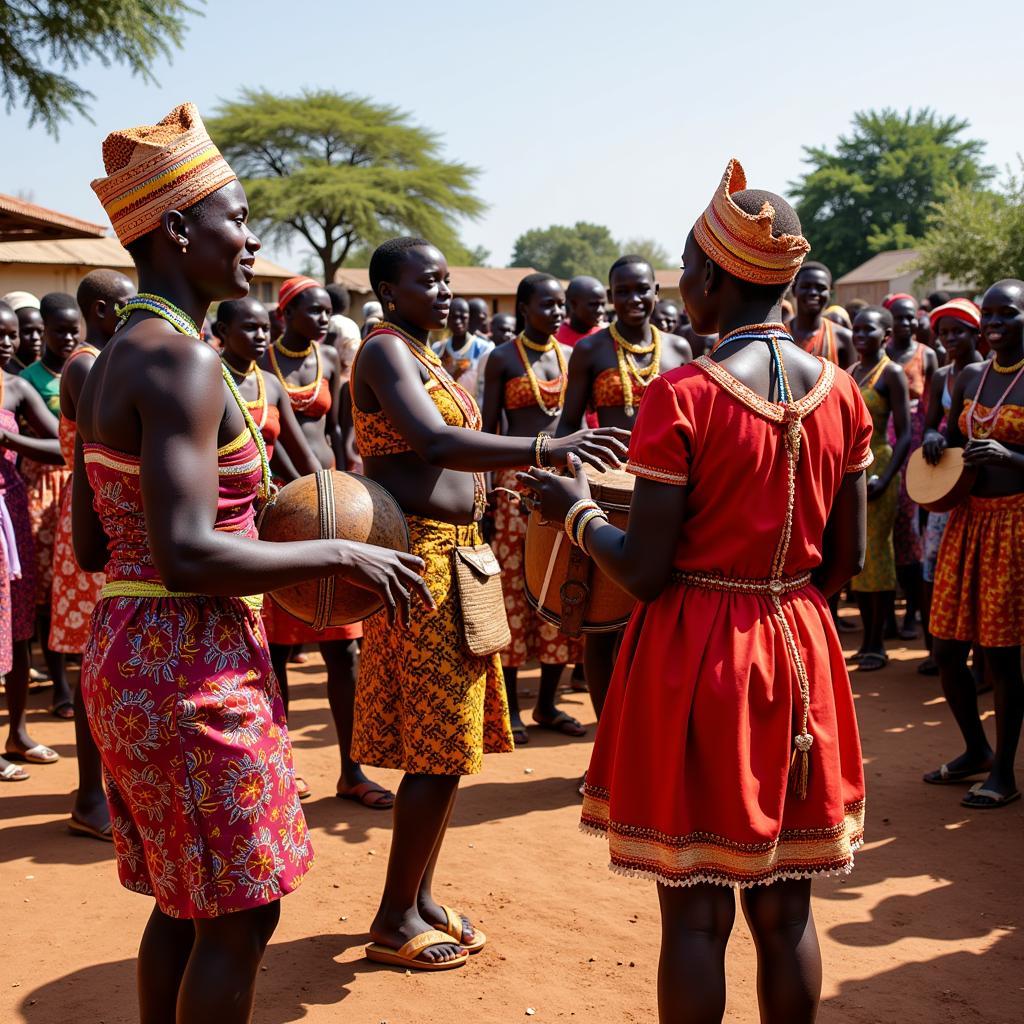The African Continent: A Cradle of Human History and Cultural Diversity
The African continent is a vast landmass teeming with life and rich in history. From the majestic savannas to the lush rainforests, from the ancient pyramids to the bustling modern cities, Africa is a place where nature and culture converge in a breathtaking symphony. This continent, often referred to as the “cradle of humanity”, has played a pivotal role in shaping human history, leaving an indelible mark on the world.
Unraveling the Tapestry of Human Origins
The African continent holds the key to understanding our collective past. Archaeological discoveries have unearthed the earliest evidence of human evolution, showcasing the remarkable journey from our primate ancestors to the sophisticated beings we are today. Sites like Olduvai Gorge in Tanzania and the Afar Triangle in Ethiopia bear witness to the emergence of early hominids, shedding light on the roots of our species.
The Cradle of Civilization: Ancient Africa
Africa’s history is not merely about the origins of humanity; it is also about the birth of civilizations. The ancient Egyptian civilization, known for its magnificent pyramids, intricate hieroglyphics, and advanced knowledge of astronomy, medicine, and engineering, flourished along the banks of the Nile River. Other ancient African civilizations like the Aksumite Kingdom in present-day Ethiopia, the Nok Culture in Nigeria, and the Great Zimbabwe in Zimbabwe, each contributed significantly to the development of human society.
A Tapestry of Cultures and Traditions
The African continent boasts a stunning array of cultures and traditions, as diverse as its landscapes. From the vibrant colors of the Maasai people in East Africa to the intricate beadwork of the Himba in Namibia, every tribe and community holds unique customs, beliefs, and artistic expressions. This cultural richness is evident in the continent’s music, dance, art, cuisine, and storytelling, each reflecting a distinct heritage and identity.
The Rhythms of Africa: Music and Dance
Music and dance are intrinsic to African culture, providing a powerful medium for expressing emotions, celebrating life’s milestones, and passing down knowledge through generations. The continent’s musical landscape is diverse, ranging from the polyrhythmic beats of West African drumming to the soulful melodies of South African choirs, each with its own unique style and significance.
A Feast for the Senses: African Cuisine
African cuisine is a culinary journey through a kaleidoscope of flavors and ingredients. From the hearty stews of West Africa, prepared with a variety of spices and vegetables, to the tangy curries of East Africa, flavored with fragrant herbs and spices, each region offers a distinct gastronomic experience. Food plays a central role in African society, serving not only as sustenance but also as a means of bringing people together and celebrating special occasions.
The Legacy of Resilience and Spirit
The African continent has faced numerous challenges throughout its history, from colonialism to political instability and poverty. Yet, the people of Africa have shown remarkable resilience and an unwavering spirit. They continue to strive for a better future, driven by a deep love for their homeland and a determination to build a more prosperous and equitable society.
The Future of Africa: A Vision of Hope
Despite the challenges, Africa’s future holds immense potential. The continent boasts a young and vibrant population, abundant natural resources, and a growing middle class. With a renewed focus on education, technology, and economic development, Africa is poised to become a major player on the global stage.
FAQs About the African Continent
Q: What makes the African continent so unique?
A: The African continent is unique for its incredible biodiversity, ancient history, vibrant cultures, and the resilience of its people. It’s a place where you can witness the raw beauty of nature, delve into fascinating cultural traditions, and discover the roots of humanity.
Q: What are some of the most important things to know about African culture?
A: Respect for elders, community spirit, storytelling, music and dance, and a deep connection to the land are some of the most important aspects of African culture. It’s crucial to approach these with an open mind and an appreciation for their unique traditions.
Q: What are some of the most iconic African landmarks?
A: Some of the most iconic landmarks in Africa include the Great Pyramids of Giza, the Victoria Falls, Table Mountain in South Africa, and the Serengeti National Park in Tanzania. Each of these landmarks offers a glimpse into the continent’s natural beauty and history.
Q: What are some of the key challenges facing Africa?
A: Some of the key challenges facing Africa include poverty, inequality, conflict, climate change, and a lack of infrastructure. However, the continent is also experiencing significant progress in many areas.
Q: What are some of the opportunities for the future of Africa?
A: Africa has a young and growing population, abundant natural resources, and a rapidly developing technology sector. These factors present significant opportunities for economic growth, innovation, and social progress.
Conclusion
The African continent is a place of incredible diversity, rich history, and vibrant culture. It is a land of contrast, beauty, and resilience, where the past continues to shape the present and the future holds immense promise. By embracing the continent’s diversity and understanding its challenges and opportunities, we can contribute to a brighter future for all Africans.



